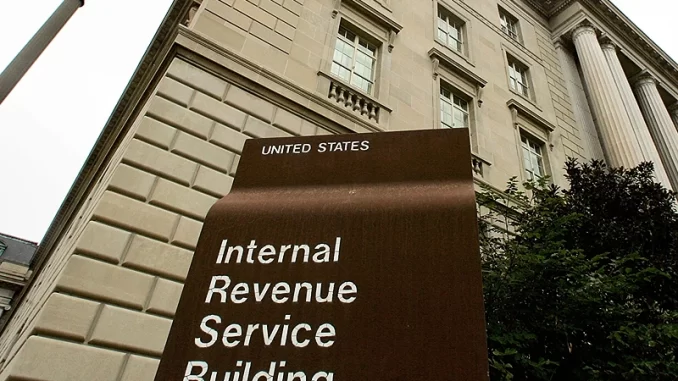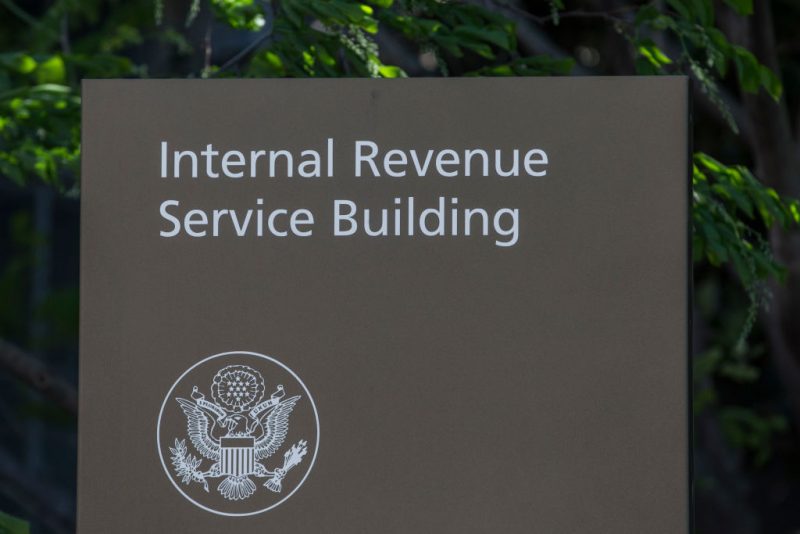

OAN’s Brooke Mallory
3:11 PM – Friday, June 14, 2024
According to a report, the Internal Revenue Service (IRS) imposed $7 billion in extra tax penalties last year, about four times the $1.8 billion it assessed in 2022 following the Biden administration’s push for increased funding and enforcement of the agency.
Advertisement
In 2022, the Biden administration agreed to give “roughly $78 billion [to] the IRS, to be phased in over 10 years,” according to Time Magazine.
The Wall Street Journal (the Journal) reported that the bulk of the fines were imposed on individuals who underpaid their anticipated quarterly income taxes, including investors, entrepreneurs, freelancers, and others who do not normally deduct federal income taxes from their paychecks.
Based on IRS data published by The Journal, the average projected tax penalty increased to $500 in the fiscal year 2023 from $150 in the prior year.
Non-employees face interest charges and fines if they fail to pay their quarterly estimates. The penalty rate went from just 3% in 2021 to 6% in 2022 as a result of the recent surge in interest rates.
For the fourth quarter of last year, the rate increased to 8%. For the first two quarters of this fiscal year, the higher rate was in place.
“These charges can hit hard, so getting it right can save people hundreds or even thousands of dollars a year,” said Richard Pon, a San Francisco-based accountant, who spoke with The Washington Post.
While most employees have their paychecks withheld, others have quarterly obligations to pay all or part of their federal income tax.
Monday is the deadline for filing taxes for the second quarter with the IRS.
A $561 billion increase in tax collections is anticipated between 2024 and 2034 as a result of increased enforcement made possible by funding from Democrats’ August 2022 Inflation Reduction Act.
However, the Biden White House painted a much different picture on its official website regarding the details behind the Inflation Reduction Act.
“On August 16, 2022, President Biden signed the Inflation Reduction Act into law, marking the most significant action Congress has taken on clean energy and climate change in the nation’s history. With the stroke of his pen, the President redefined American leadership in confronting the existential threat of the climate crisis and set forth a new era…” the White House said in a statement.
The IRS received an influx of $80 billion in funding through the Inflation Reduction Act. It also resulted in the recruitment of thousands more employees.
Additionally, the IRS is expected to receive hundreds of billions of dollars in delayed and unpaid taxes, according to a study released earlier this year by the Treasury Department.
“The Congressional Budget Office in 2022 estimated that the tens of billions of new IRS funding provided by the IRA would increase revenues by $180.4 billion from 2022 to 2031.However, House Republicans built a $1.4 billion reduction to the IRS into the debt ceiling and budget cuts package passed by Congress last summer. A separate agreement took an additional $20 billion from the IRS over the next two years to divert to other non-defense programs,” The New York Post reported.
Some Republicans have previously theorized that Biden’s initial strategy was to placate Democratic voters while simultaneously imposing significantly higher taxes on all U.S. taxpayers in order to finance “unnecessary government programs that support diversity, equity, and inclusion (DEI), LGBTQ and transgender-related services, clean needles and drug paraphernalia for addicts, while pushing for more ‘green’ initiatives… All the while, the same ‘environmentally-friendly’ elites take private jets to every event they attend,” according to one GOP political analyst.
Stay informed! Receive breaking news blasts directly to your inbox for free. Subscribe here. https://www.oann.com/alerts






Be the first to comment